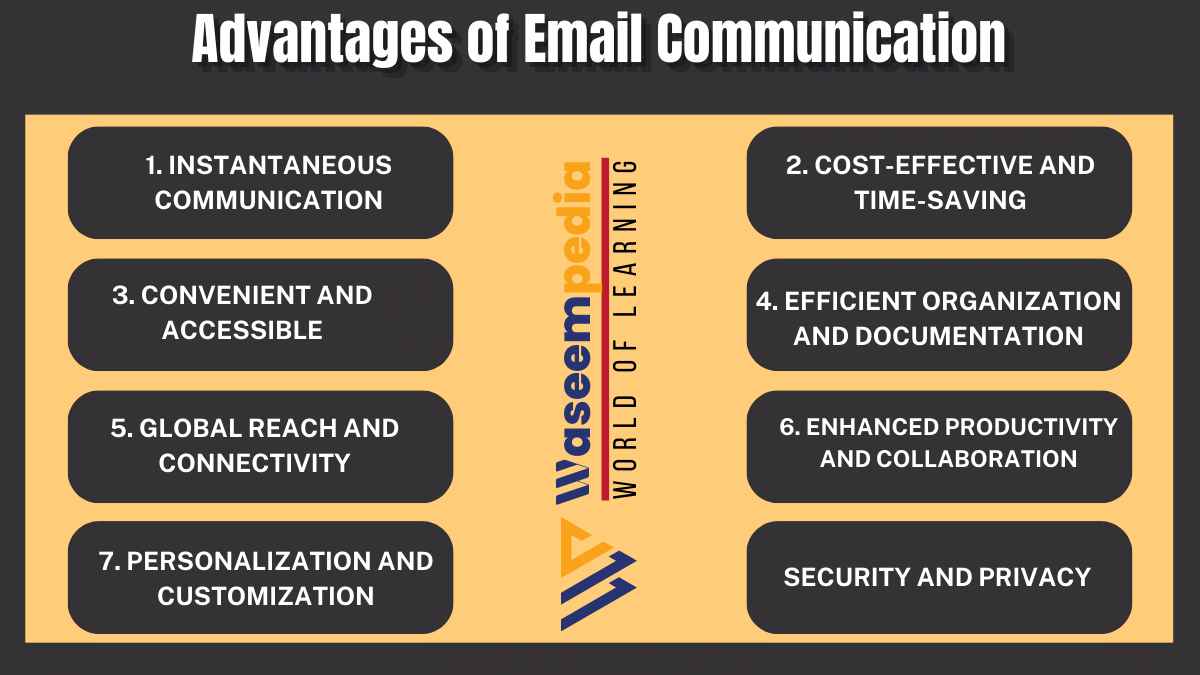Email communication has changed the way we talk to each other, and it has many great advantages. It’s fast, cheap, and easy to use, and we can talk to people all over the world. Whether it’s for personal or work reasons, email is an important tool that helps us get things done and stay connected.
In the past, people used different ways to communicate, like writing letters or sending telegrams. But email has become a game-changer! It’s faster and more convenient than other methods, making it the top choice for many of us.
In this article, we’ll explore why email communication is so popular and how it benefits both individuals and businesses. Email has truly revolutionized the way we communicate!
Communication is the backbone of human interaction, and throughout history, various forms of communication have emerged.

From handwritten letters to telegrams, fax machines to instant messaging, each innovation has brought its own advantages. However, none have had as profound an impact as email communication.
13 Advantages of Email Communication
13 Advantages of Email Communication are given below.
1. Instantaneous Communication
One of the primary advantages of email communication is its speed. Emails are delivered instantaneously, allowing for quick and efficient exchanges of information. Whether it’s sending a message to a colleague, discussing ideas with a client or staying in touch with loved ones, emails provide a swift and reliable means of communication.
2. Cost-Effective and Time-Saving
Email communication eliminates the need for traditional mail services and associated costs such as postage and paper. Sending an email is virtually free, making it an economical choice for individuals and businesses alike. Additionally, emails save time by bypassing the delays of physical delivery, allowing for real-time conversations and prompt responses.
3. Convenient and Accessible
With email, communication is not limited by time or location. Emails can be sent and received 24/7, allowing for flexibility in communication. Whether you’re in a different time zone or working remotely, email ensures that you can stay connected and access your messages whenever it’s convenient for you.
4. Efficient Organization and Documentation
Emails provide a structured and organized way to manage and store information. Conversations can be grouped into threads, making it easy to follow discussions and retrieve past messages. Additionally, emails serve as a reliable record of communication, allowing for future reference and documentation.
5. Global Reach and Connectivity
Email communication knows no boundaries. It allows individuals and businesses to connect with people around the world effortlessly. Whether you’re collaborating with international colleagues or reaching out to potential customers overseas, email enables global connectivity and expands your network.
6. Enhanced Productivity and Collaboration
Emails facilitate effective collaboration by enabling seamless sharing of documents, files, and ideas. With attachments and cloud storage integration, teams can work together on projects without the constraints of physical proximity.
Email also allows for easy coordination of schedules and meetings, enhancing productivity and teamwork.
7. Personalization and Customization
Emails provide a platform for personalization and customization. Users can create professional email signatures, customize email templates, and tailor messages to suit specific recipients.
This level of personalization adds a touch of professionalism and helps build stronger relationships with clients, colleagues, and customers.
8. Eco-Friendly Solution
In an era where sustainability is a pressing concern, email communication offers an eco-friendly alternative to traditional paper-based communication.
By reducing the need for physical mail and printed documents, email helps conserve resources, minimize waste, and reduce the carbon footprint associated with communication.
9. Security and Privacy
Email platforms have evolved to include robust security measures, protecting sensitive information and ensuring privacy. Features such as encryption, two-factor authentication, and spam filters help safeguard email accounts from unauthorized access and malicious attacks. Users can communicate with confidence, knowing their messages are secure.
10. Integration with Other Tools and Services
Email seamlessly integrates with a wide range of tools and services, further enhancing its utility. From calendar apps to task management systems, email can be integrated with various productivity tools, streamlining workflows and improving efficiency.
This integration enables users to manage multiple aspects of their personal and professional lives from a single platform.
11. Flexibility and Mobility
Email communication offers the flexibility to access messages from multiple devices, including smart phones, tablets, and computers. Whether you’re on the go or working remotely, you can stay connected and respond to emails promptly.
This mobility ensures that important messages are never missed, contributing to effective communication and responsiveness.
12. Email Marketing and Business Growth
Email marketing has emerged as a powerful tool for businesses to reach and engage with their target audience. Through carefully crafted email campaigns, businesses can promote their products, share valuable content, and build lasting relationships with customers.
Email marketing enables personalized and targeted communication, driving business growth and nurturing customer loyalty.
13. Overcoming Language Barriers
Email communication helps bridge language barriers, making it easier to connect with individuals who speak different languages. With translation tools and the ability to compose emails in various languages, email fosters cross-cultural communication and facilitates international business interactions.

